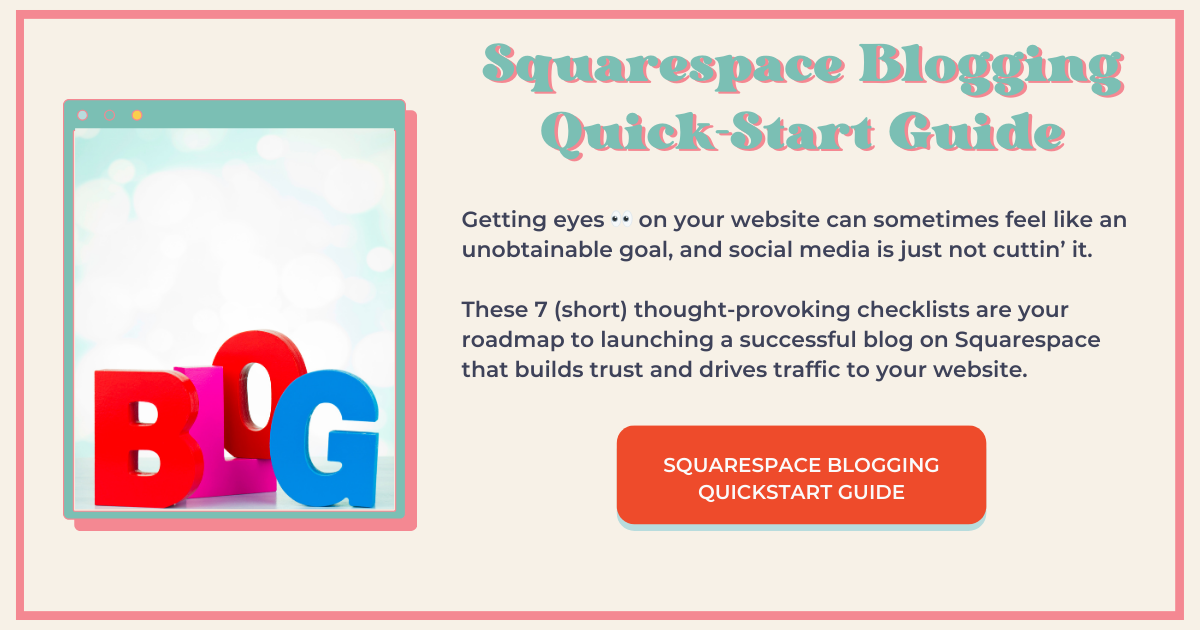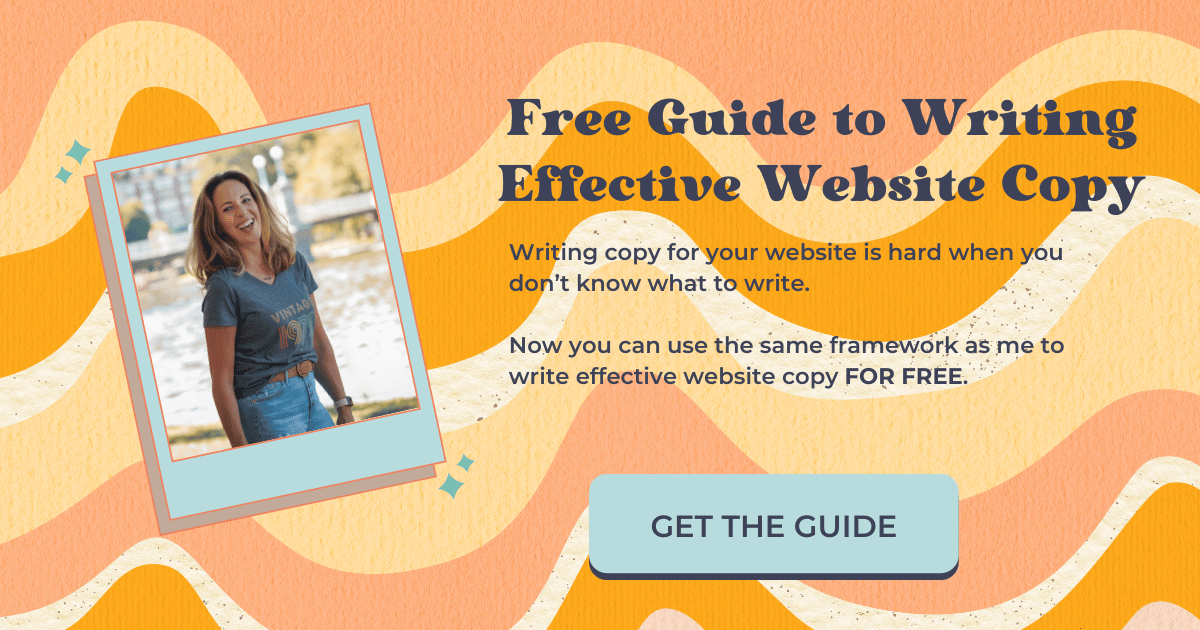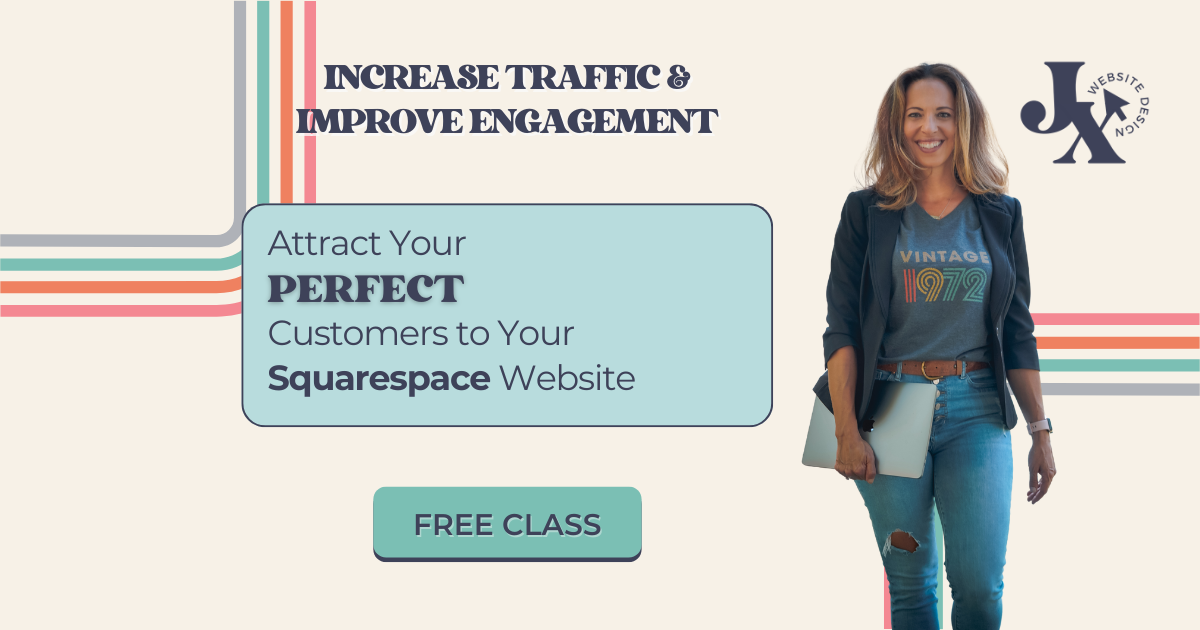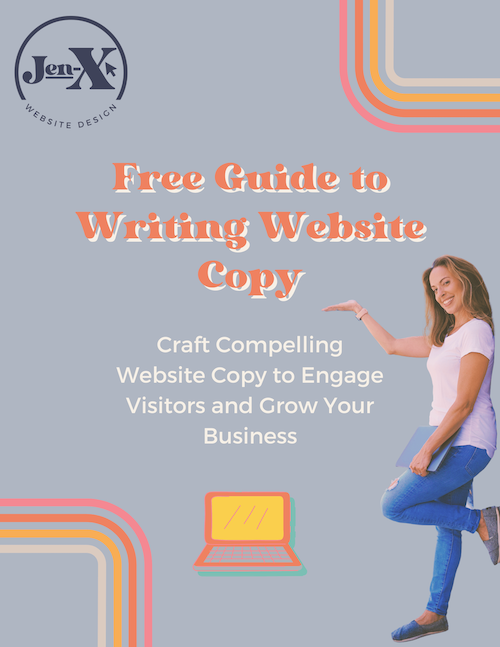This Is Why You Shouldn’t Have an About Page On Your Website
I thought that might get your attention!
First let me go on record as saying, I think you’re totally awesome!
Second, it’s okay to tell me you disagree with me. I am reachable and I don’t hold fast to my beliefs because it inhibits growth. So if you disagree with me, fire away! I’ll respect you for it!
Thirdly, lemme just say that most businesses (not all) should not have an About page on their websites.
In this post, I’m gonna give you lots of reasons why you shouldn’t have an About page on your website, give examples of businesses that should have them, and make suggestions as to what you can do instead.
Reason #1: Because It’s the Second Most Viewed Page on Your Website
I know what you’re thinking…Jen, you’re not making any sense!
But think about it. Is the About page the page you actually want people to go to when they land on your website?
Don’t you want them to get your lead generator? Or book a call with you? Or shop your products?
If they see an option in the navigation that says, “About Us,” something in their brain says, “I should click here first.”
In fact, they are probably expecting to find information on that page that you haven’t actually put there.
So when they click on ‘About’ and find a bunch of text that has absolutely no value to them, they bounce, and they don’t come back because they’ve already forgotten about your boring About page.
Personally, I do not want my visitors clicking over to a page that talks all about, well, me (yawn).
When visitors land on my website I am trying to get them to take a specific action. I either want them to:
Subscribe to my email list by downloading my lead magnet (the transitional call-to-action), or
Schedule a call with me to talk about working together (the strong call-to-action)
The transitional CTA is a low-risk entryway of engaging with my brand. All it costs is an email address.
A strong CTA is the first step to entering into a transaction with my brand.
Therefore, I do not wish to divert my visitor’s attention to a page that doesn’t offer any value to them or further engagement with my brand.
Reason #2: Because Your Potential Customers Don’t Actually Care About You
Contrary to popular belief, your customers don’t care about you.
They only care about you to the extent that you can show them you have the empathy and authority to solve their problem.
They will definitely not read a novel on your website, I don’t care how many which ways you chunk your text, add subheadings, or include GIFs. They don’t have time nor do they care. They only want the details that will further their decision about whether or not they think you can help them solve their problem.
People don’t have time to learn about your history, your kids, your cute dog, every step of your personal journey, or any other completely irrelevant information. If you’re doing this, then you’re talking about yourself too much on your website, and it’s a bit off-putting.
Convey yourself as an empathetic authority who can solve your customer’s problem and put this information right on the homepage of your website.
If you need some help with this, I suggest using my Guide to Writing Effective Website Copy. It’s an excellent resource and it’s totally free!
This guide breaks the important pages of your website into sections and helps you write the content for each section, including the section where you talk about your empathy and authority to help potential customers.
Reason #3: Because Your Business Isn’t About You, It’s About Your Customers
You may have heard it said that your About page isn’t actually about you, but about your customers.
If you’re going to have an About page on your website, then this advice is totally correct.
With that in mind then, why have one at all?
As stated above, you can convey yourself as an empathetic authority who can solve your customer’s problem right on the homepage of your website, which is actually THE most viewed page on your website, and prevent website visitors from clicking through to a page that is more of a diversion than a step closer to engaging with your brand.
In other words, a click-through to an About page is actually a step farther from engaging with your brand.
It prevents website visitors from taking a step to either get on your mailing list or take the first step to making a transaction.
Reason #4: Because You Want to Limit the Number of Options in Navigation
Decision fatigue: difficulty in making a good decision experienced as a result of the number of decisions one needs to take.
Have you ever landed on a website only to be bombarded with a host of options in the navigation menu?
Instead of the website guiding you through the appropriate channels, you are left to make a decision on your own, not really knowing where you should go next.
The more options available to you, the more difficult it is to make a decision.
For you parents out there, think about your little ones (or think back to long, long ago when your kids were little, as is the case with me). You don’t give a child 17 options when it comes to picking out anything. Clothes, food, a prize at the doctor’s office, what color crayon to use, toys, you name it.
You typically give them…2.
Because 2 is easy, it’s either one or the other, and we moms and dads know how much faster and easier it is for our little ones to make a decision when there are fewer options in the first place.
They’re happier, and we’re happier.
Now, let’s go back to those options we gave our precious little angels. WE decided what those 2 options were.
We provided options so that, whichever option they chose, the result would benefit not only them but also US.
You can apply this same principle on your website.
Any option you give potential customers should result in a dual benefit: they get the information they seek, and you get a potential customer who is actively engaged in furthering the relationship with your brand.
Provide only the options that are necessary to further the relationship with potential customers. You don’t have to, nor should you, include everything in navigation, especially a page that goes on and on about you.
The Exception: Who Should Have an About Page on Their Website
There are times when it is important to have an About page on your website, but this is the exception, not the rule.
For businesses where a high level of trust and confidentiality is imperative to a customer’s decision to engage with that brand, it’s very important to have an About page.
Also, for businesses where there is a staff of people providing the services to the customers, an about page provides the opportunity for each of them to convey themselves as an empathetic authority who can solve the customer’s problem.
I’ll give you a few examples:
Certified financial planner
Lawyer
Therapist
Doctor/Dentist
Basically, anyone privy to your personal and/or financial information
Businesses where there are several staff members
When a business is managing a person’s highly personal and confidential information, they need to provide information about themselves that will reinforce a potential customer’s trust in them.
This can mean communicating stats like the number of years of experience, number of customers served, number of surgeries performed, certifications and degrees that speak to authority and expertise, awards and recognitions, places featured like articles, TV, and blog posts, continuing education, specializations, etc.
Similarly, for businesses where there a many people on staff providing paid services, listing areas of expertise, credentials, certifications, awards, media mentions, etc., provides visitors an opportunity to learn more about how individual staff members contribute to the whole of the business and can help customers solve their problem.
As you can see, it’s not about them at all. It’s all about making people feel comfortable about working with them.
Do You Agree or Disagree?
So what do you think? Have you solidified the belief that you must have an About page because you’ve heard highly successful influencers say so? Have you looked at your website stats to see what the bounce rate is for your About page? Do you think it would hurt if you removed it? I’d love for you to share your thoughts in the comments 👇!
This page contains affiliate links











